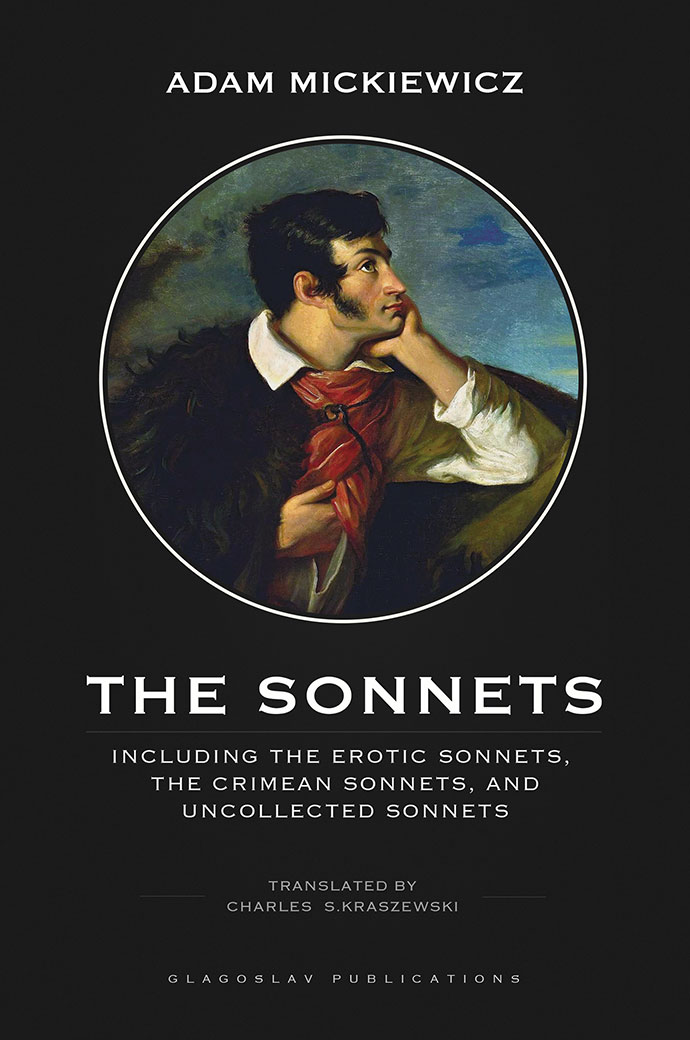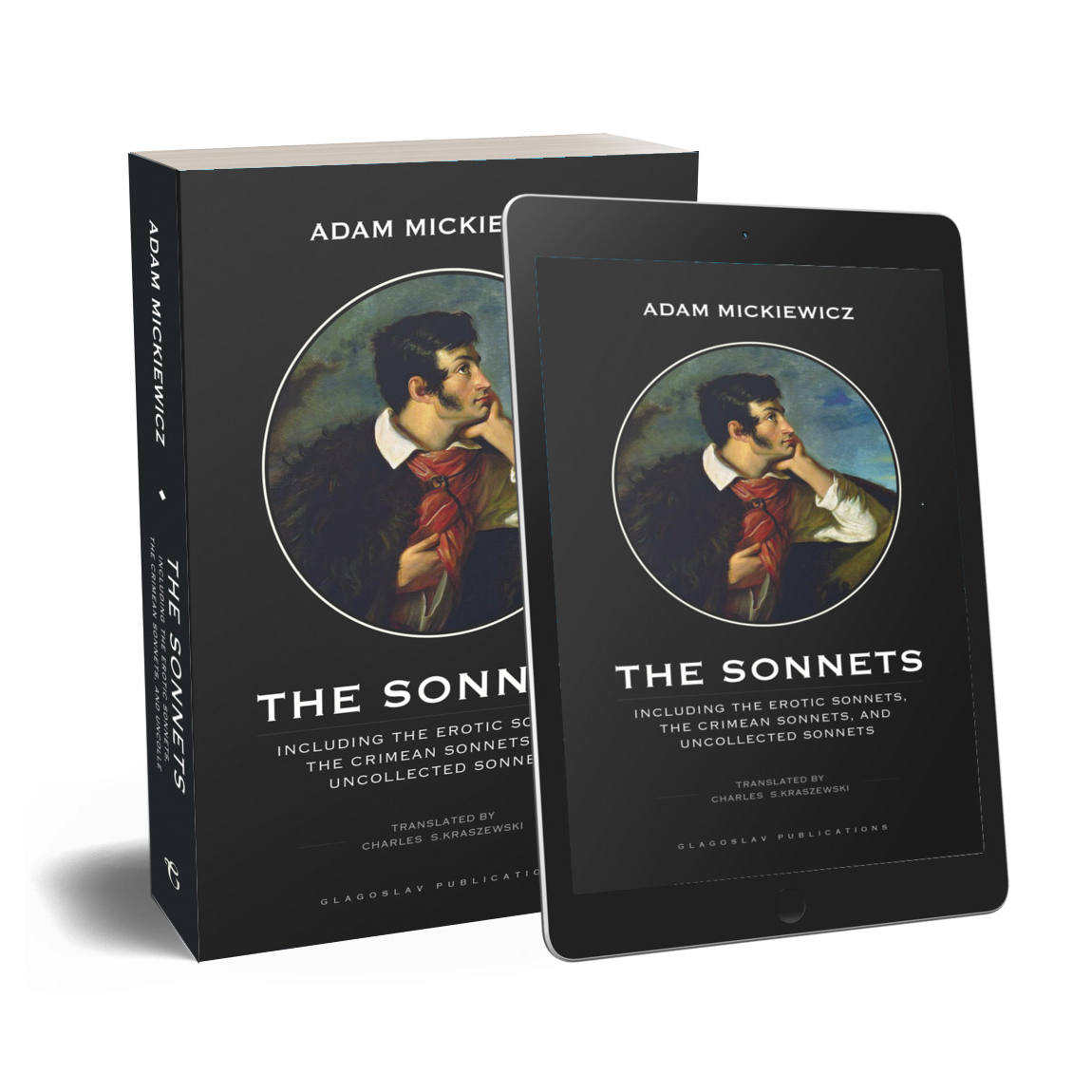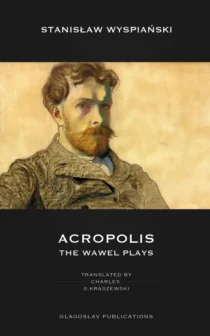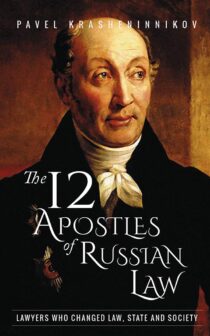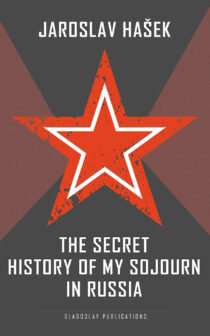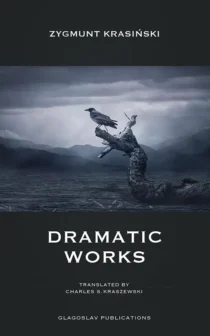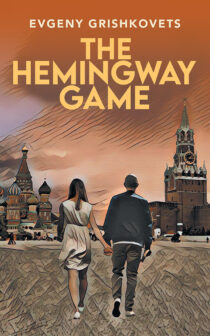The Sonnets
Price range: €9.95 through €24.99
Including The Erotic Sonnets, The Crimean Sonnets, and Uncollected Sonnets
Author: Adam Mickiewicz
Translator: Charles S. Kraszewski
Because the poetry of Adam Mickiewicz is so closely identified with the history of the Polish nation, one often reads him as an institution, rather than a real person. In the Crimean and Erotic Sonnets of the national bard, we are presented with the fresh, real, and striking poetry of a living, breathing man of flesh and blood. Mickiewicz proved to be a master of Petrarchan form. His Erotic Sonnets chronicle the development of a love affair from its first stirrings to its disillusioning denouement, at times in a bitingly sardonic tone. The Crimean Sonnets, a verse account of his journeys through the beautiful Crimean Peninsula, constitute the most perfect cycle of descriptive sonnets since du Bellay.
Because the poetry of Adam Mickiewicz is so closely identified with the history of the Polish nation, one often reads him as an institution, rather than a real person. In the Crimean and Erotic Sonnets of the national bard, we are presented with the fresh, real, and striking poetry of a living, breathing man of flesh and blood. Mickiewicz proved to be a master of Petrarchan form.
His Erotic Sonnets chronicle the development of a love affair from its first stirrings to its disillusioning denouement, at times in a bitingly sardonic tone. The Crimean Sonnets, a verse account of his journeys through the beautiful Crimean Peninsula, constitute the most perfect cycle of descriptive sonnets since du Bellay. The Sonnets of Adam Mickiewicz are given in the original Polish, in facing-page format, with English verse translations by Charles S. Kraszewski.
Along with the entirety of the Crimean and Erotic Sonnets, other “loose” sonnets by Mickiewicz are included, which provide the reader with the most comprehensive collection to date of Mickiewicz’s sonneteering. Fronted with a critical introduction, The Sonnets of Adam Mickiewicz also contain generous textual notes by the poet and the translator.

| Dimensions | N/A |
|---|---|
| Author | Adam Mickiewicz |
| Pages | 188 pages |
| Book Format | Hardcover, Paperback, EPUB, Kindle, PDF |
| Publication date | 9th October 2018 |
Author
Adam Mickiewicz
Translator
Charles S. Kraszewski (b. 1962) is a poet and translator. He is the author of three volumes of original verse (Diet of Nails; Beast; Chanameed). Several of his translations of Polish and Czech literature have been published by Glagoslav, among which may be found: Adam Mickiewicz’s Forefathers’ Eve (2016) and Sonnets (2018), Zygmunt Krasiński’s Dramatic Works (2018) and Stanisław Wyspiański’s Acropolis: the Wawel Plays (2017). His translations of the poetry of T.S. Eliot, Robinson Jeffers, and Lawrence Ferlinghetti into Polish have appeared in the Wrocław monthly Odra. He is a member of the Union of Polish Writers Abroad (London) and of the Association of Polish Writers (Kraków).
Endorsements and Review Quotes
“The Sonnets is a wealth of information that gives us a depth and understanding of one of Poland’s greatest writers. Kraszewski depicts the idolized poet in an endearing expression of humanity that makes him available to the modern English speaker. […] Though the national poet may sometimes get lost in the canon of Polish literary history, Kraszewski presents a ‘living breathing man of flesh and blood’.” Xenia Sylvia Dylag Murtaugh, The Polish Review
